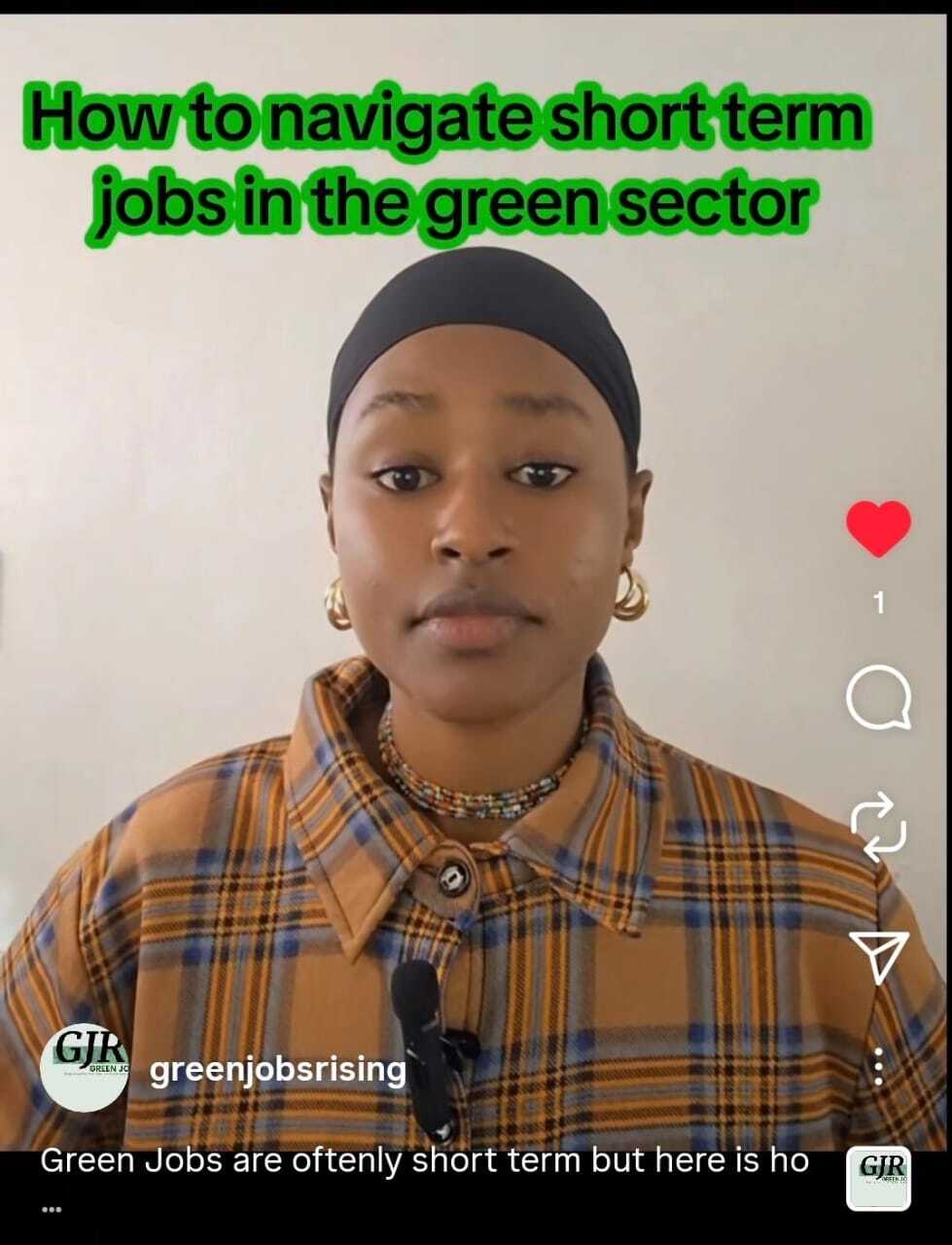- Green Jobs Rising
- Posts
- Hired for the project, not the future
Hired for the project, not the future
What’s not working in Africa’s green economy; the short life of donor-funded jobs

Hey,
Welcome to Green Jobs Rising!
In today’s newsletter, we want to address the downside of the green transition.
This sector, like any other, faces its fair share of challenges.
But this isn’t a reason to give up hope. It’s a reality check we must confront if we’re serious about building lasting green careers.
The green sector across Africa is largely driven by donor and government funding.
Many green projects run for only a short period, projects like promoting sustainable farming, recycling, land restoration programmes or renewable energy initiatives.
The projects hire many people while it is running.
But once the funding stops, so do the jobs.
What was once a busy, exciting project slows down, and people have to start looking for work again.
Examples of such projects include:
Powering Jobs Census 2022 – The Energy Access Workforce. Off-grid solar and mini-grid sectors in Kenya, Uganda, and Nigeria created hundreds of thousands of jobs. Yet most of these were short-term or contractual. Companies expanded rapidly when donor projects were active but downsized once funding or sales slowed. (Power for All, 2022)
Zimbabwe Productive Safety Net – Pilot Public Works Project. This initiative provided temporary employment for thousands of people through climate-resilient public works such as land restoration and small-scale irrigation. When the pilot phase ended, most workers were not absorbed into permanent roles. (World Bank, 2023)
Pro-Poor Tourism Pilots in Southern Africa (ODI). Tourism and conservation pilots across Southern Africa created seasonal green jobs such as guides, maintenance staff and local coordinators. Once the projects concluded, employment dropped sharply. (Overseas Development Institute, 2020)
It’s a cycle that keeps repeating: new ideas come up, but the jobs don’t last.
The challenge, therefore, isn’t just about creating green jobs; it’s about sustaining them.
Across Africa, many young professionals are riding the wave of green projects which, unfortunately, are mostly short term. While at it, here are a few ways to stay afloat.
Long-term opportunities remain few.
The green transition on the continent must move beyond quick wins.
We need to build local green businesses that can stand on their own, strengthen policies that support them, and create real markets that keep people employed, not just during a project but long after it ends.


Reply